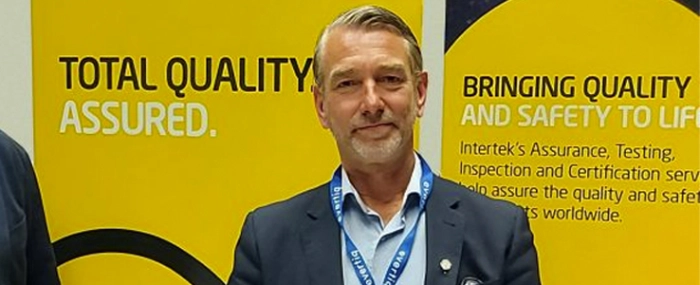
70% of products miss the mark when they come to final testing
Some 70% of companies that come to a test house do not meet the requirements and as a result, lose both time and money. Don’t fail – include the regulatory part in your product planning and development.
The numbers come from TIC Council, the international industry organisation for Testing, Inspection and Certification, and unfortunately, the organisation has more alarming numbers to present.
About 63% of products, in various different categories, do not meet requirements at the first attempt; roughly 19 % of products, in various different categories, do not meet requirements when being inspected in factories.
Failing on your first attempt might not sound all that bad, of course, anyone can make mistakes. But when a failure also includes a delay of product launch, on average two months and also increased costs – well, then it actually starts to become a little more problematic.
Why does this happen? Fredrik Hirn, who on a day-to-day basis works at Intertek – a supplier of quality assurance, testing and certification services – believes that one of the culprits is an increasingly complex standard of requirements for the products. In addition to that, one also has to – unfortunately – add a lack of knowledge on the part of the manufacturers.
“The requirements for testing different products have increased significantly over the past 20 years. Let's take a washing machine as an example. When the washing machine was a simpler mechanical product, around 50 test hours were required for approval. Today we are talking about a smart product that is often connected and has a lot of different functions, the complexity has increased significantly and it takes about 400 test hours for a washing machine today,” Fredrik explains to Evertiq.
Adding to this, Fredrik points out that the world has become less harmonised over the past 10 years in relation to standards.
Protectionism has increased, rather than decreased, and this means that more and more countries are going outside the internationally agreed upon standards and adding their own requirements, he says.
Why do you think that the understanding of these test requirements appears to be lacking?
“My spontaneous answer would be that many of those who work with product development are not all that familiar with the regulatory part. The focus is on innovation, on functionality and features and trying to differentiate from the competition. In this context it's easy for the regulatory parts to end up in the backseat, even though it is actually just as important.”
Fredrik explains that on the list of the main reasons why a product does not pass final testing, we find EMC problems, various forms of component approval where the specification may be inadequate or that the documentation just simply doesn’t hold up to scrutiny. In a worst-case scenario, this could lead to a total redesign, which is both time-consuming and expensive and also adds the risk of a competitor launching their product before yours.
Larger companies tend to have more resources to spend on the regulatory part, and thus more often hit the mark. But at the same time, there are no flawless companies – even the big dragons can make mistakes. But in this instance, we’re usually talking about minor corrections that need to be made.
Cheaper products and those that can be found during specific seasons – think flashing lights on strings during Christmas – stand out among those that fail most frequently on the first try. These products tend to have short lifespans and are usually driven by design and function rather than a focus on staying within regulatory frameworks.
Fredrik is calling for greater awareness of the regulatory part of product development, and that one should work proactively with this.
“You have to take this into account and include it in product planning and development. There must also be an awareness that product cycles are getting shorter and shorter, and thus delays are becoming more and more critical.”
Fredrik Hirn’s colleague, Jukka Vuorinen, Director of Global Accounts Electrical at Intertek, will during Evertiq Expo Tampere on 30 November 2022, take the stage and share information on how to better understand the impact of working pro-actively with regulatory requirements.


